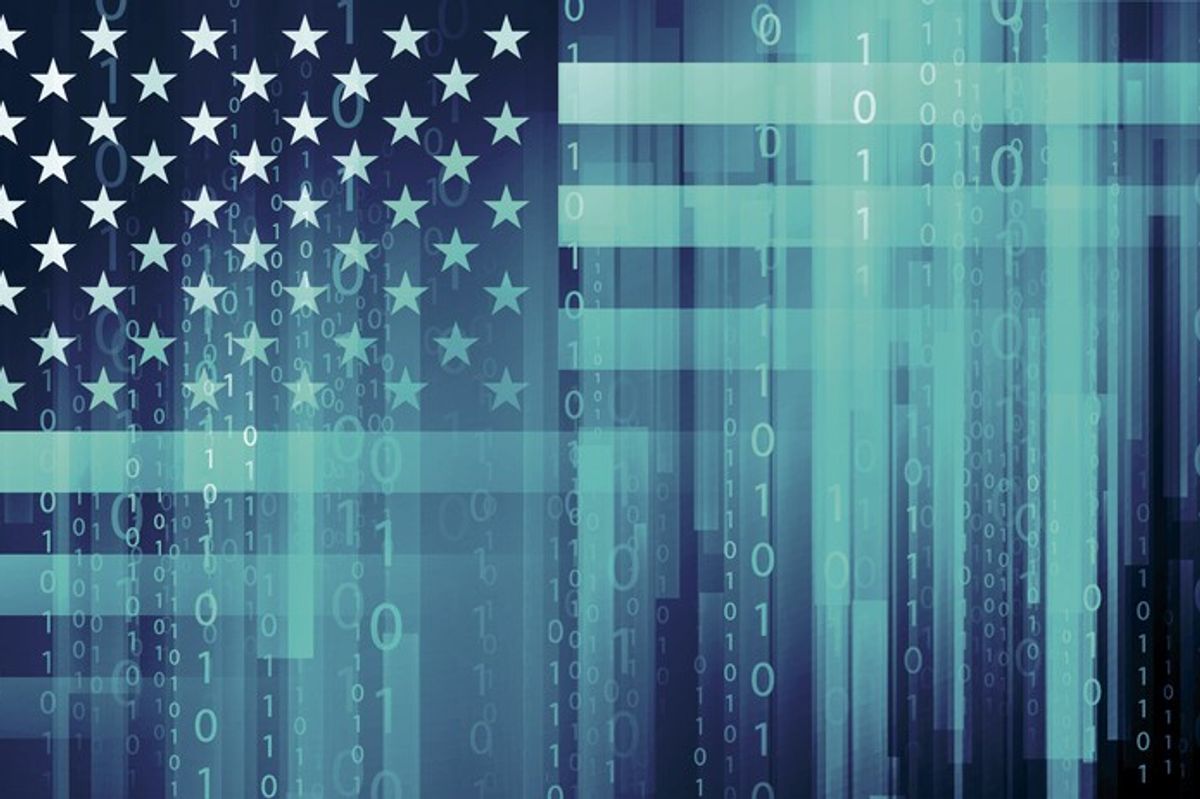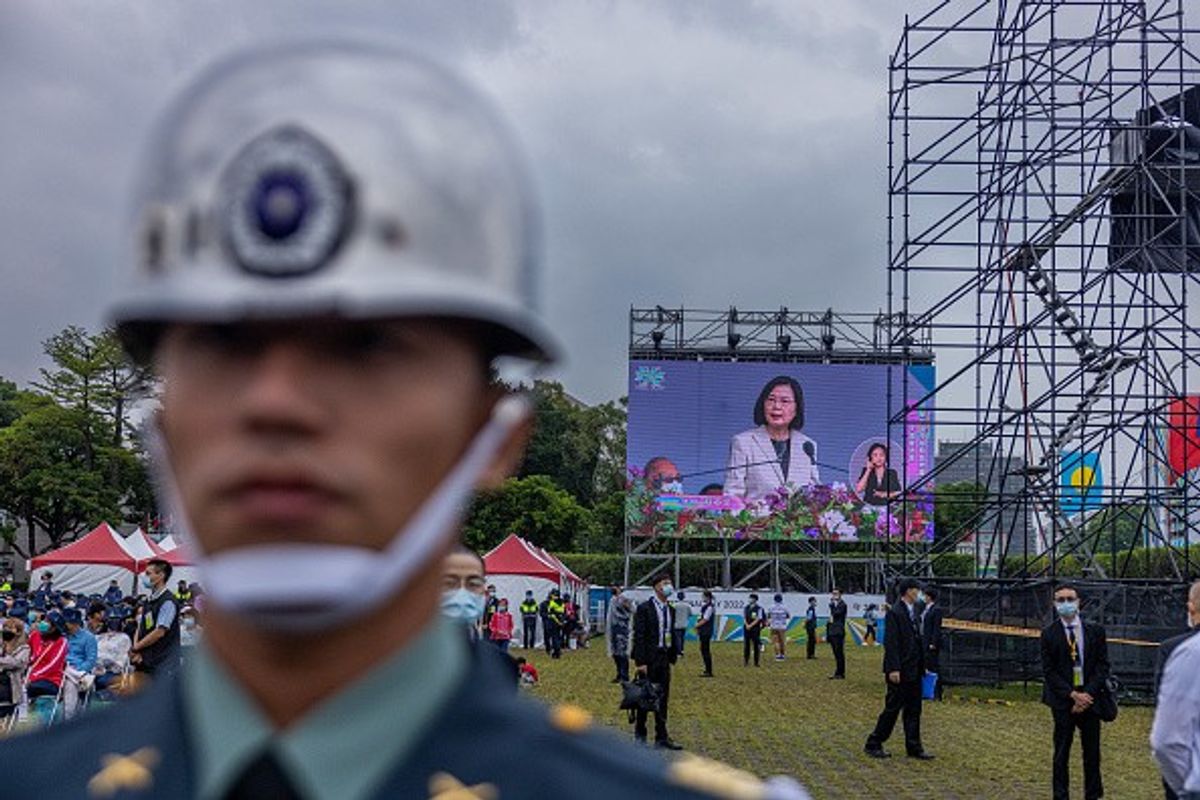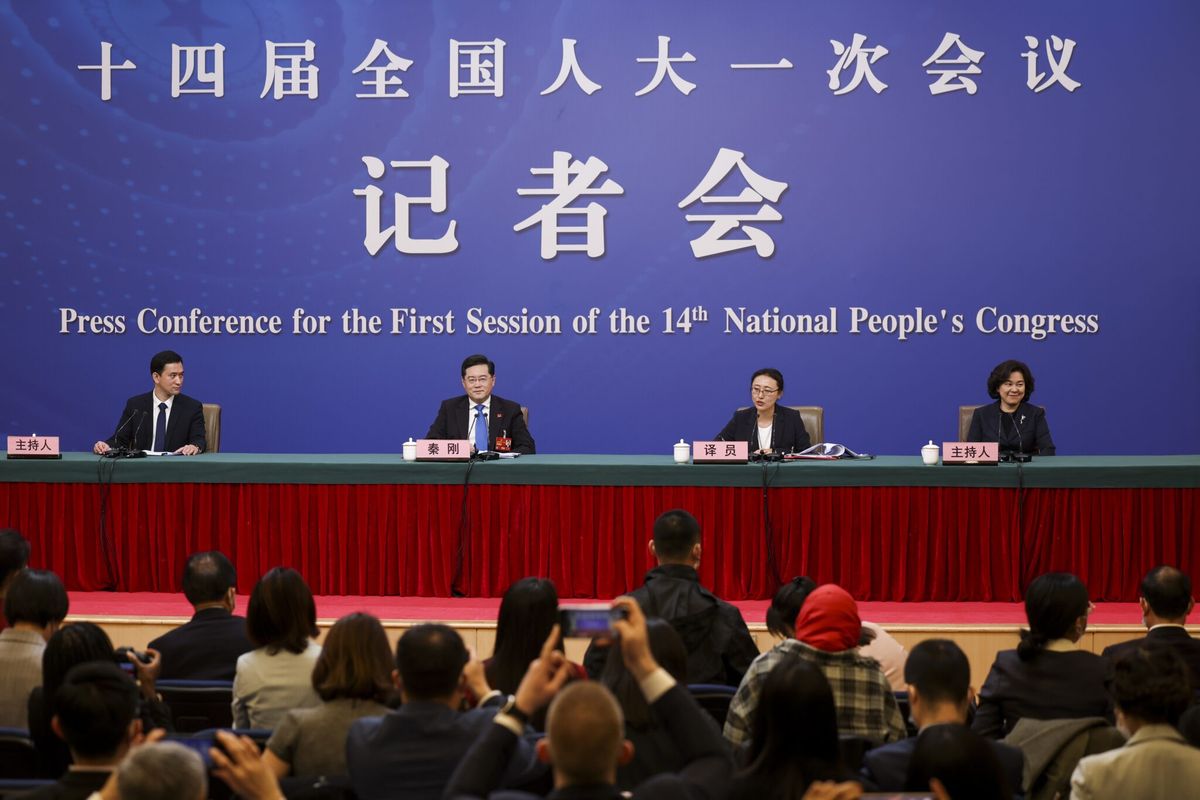BOTTOM LINE UP FRONT: Iranian President Ebrahim Raisi's visit to Syria this week marks the first visit by Iranian leader since the beginning of Syria's war in 2011. Elsewhere, thousands of people are fleeing a burgeoning civil war in Sudan. Israel is now negotiating direct flights to Saudi Arabia for Haj. Tehran and Riyadh – whose rivalry has long been among the core drivers of Middle Eastern discord – has seen a surprise détente brokered by Beijing, and a plan to reopen embassies in each other’s capitals within days. Saudi Arabia, meanwhile, is planning to host Syrian President Bashar al-Assad in an upcoming Arab League Summit at the end of May, while China may soon be able to credit itself with another diplomatic win, this time in Yemen, where a 9-year-war appears to be coming to an end, following a flurry of Chinese negotiations.
China’s Deputy Permanent Representative to the U.N. Geng Shuang implored other countries last month to “follow the general trend,” which prompted security experts and policymakers to ponder what roles Beijing and Washington will have in a region in the throes of so much realignment. This week, a U.S. special envoy also traveled there in a bid to advance Yemeni peace efforts, according to the State Department.
There is “still a need for the U.S. to play its traditional role of security guarantor in the Middle East,” explained Cipher Brief Expert James F. Jeffrey, who served as U.S. Ambassador to Iraq and Turkey, and as Special Representative for Syria Engagement. "Simply opening embassies and holding meetings does not indicate resolution or even steps toward resolution, as six years of Turkish-Russian-Iranian “Astana Process” meetings on Syria demonstrate," said Jeffrey, a reference to a 2017 peace process aimed at bringing an end to the Syrian conflict.
While some experts caution not to overstate recent changes, others, like Brian Katulis, Vice President of the Middle East Institute, say three successive U.S. administrations have made Europe and Asia much more of an American priority.
The extent of the west's Middle Eastern role is expected to be a hot topic for G7 leaders’ when they meet in the Japanese city of Hiroshima on May 19.
Along with Ambassador Jeffrey and Brian Katulis, The Cipher Brief asked Barbara Slavin, Distinguished Fellow at the Stimson Center, and Michelle Grisé, Policy Researcher at RAND Corporation, to share their insights on recent developments in the region ahead of what promises to be a busy month.
TIMELINE
- May 19 – Saudi Arabia to host the next Arab League summit, where Syria’s membership is widely to again be a topic of discussion.
- May 9 – Plans for the reopening of Iranian and Saudi embassies in their historic rivals’ capitals. An Iranian Foreign Ministry spokesman noted that a Saudi technical delegation visited Iran earlier in April to inspect their embassy in Tehran, as well as to the northeastern Iranian city of Mashhad to inspect the Saudi consulate there. Two Iranian delegations have since visited Saudi Arabia.
- April 24 – The U.S. and Saudi Arabia broker a 72-hour truce between Sudan’s warring rivals, shattered a day later by renewed fighting across the Sudanese capital.
- April 18 – Syrian authorities announce that Saudi Arabia’s top diplomat, Foreign Minister Prince Faisal bin Farhan, has arrived in Damascus, after his Syrian counterpart traveled to Riyadh – the first such diplomatic exchange by the two nations in a decade. In addition, Arab Gulf states, as well as Egypt, Jordan and Iraq, met in Saudi Arabia in mid-April to discuss future relations with Syria. The diplomats do not endorse Syria’s return to the Arab League, but agreed to continue talks on resolving the Syrian conflict.
- April 12 – Qatar and Bahrain announce they will restore diplomatic ties, severed in 2017 over Qatar’s support for Islamist movements, as well as its connections to Shi’ite Muslim groups inside Iran and Turkey. A blockade of Qatar imposed by Saudi Arabia, the United Arab Emirates, Bahrain, and Egypt was lifted in 2021, with all but Bahrain restoring trade and travel links.
- April 8 – Israeli forces strike targets inside Syria following a barrage of rockets launched from Syrian territory, one day after cross-border violence erupted between Israel and Lebanon, and just weeks after an Iranian-linked group in Syria launches a drone strike that kills one U.S. contractor and injures six others.
- March 10 – Iran and Saudi Arabia release a joint communiqué, along with China, that they have agreed to diplomatic relations and the reopening f embassies, considered among the most momentous Middle East developments in recent memory, as well as a diplomatic win for Beijing. Part of the agreement is said to include Iran’s commitment to end weapons shipments to the Houthi rebels in Yemen.
EXPERT Q&A
The Cipher Brief: There has been much commentary that the U.S. is shifting its political, economic, and military priorities in the Middle East (e.g., its withdrawal from Afghanistan and the JCPOA). How do you assess U.S. interests and any changes Washington may be introducing to its approach and responsibilities in the region?
James F. Jeffrey, Former U.S. Ambassador to Iraq and Turkey
Ambassador James F. Jeffrey joined the Wilson Center in December 2020 as Chair of the Middle East Program. Ambassador Jeffrey served as the Secretary’s Special Representative for Syria Engagement and the Special Envoy to the Global Coalition To Defeat ISIS until November 8, 2020.
Amb. James F. Jeffrey: In the current period, it’s best to start with what core American — and arguably larger Western policy — is in this new era of great power competition. Fortunately, the Biden administration in its October 2022 National Security Strategy (NSS) has laid out a game plan that both makes sense and that it to a significant degree, is using. To quote: “We are in the midst of a strategic competition to shape the future of the international order.”
But as the NSS goes on to say, we “are stronger in each region because of our affirmative engagement in the others. If one region descends into chaos or is dominated by a hostile power, it will detrimentally impact our interests in the others.”
The first point, that as this struggle is existential and involves the future of the world order in a way we have not seen since 1989, is that we have to prioritize our resources and efforts. But the second point is that despite this prioritization, we cannot ignore any one region, as either chaos or hostile domination of it will degrade the global strategic competition. This is certainly true of the Middle East.
It's not just for the President anymore. Are you getting your daily national security briefing? Subscriber+Members have exclusive access to the Open Source Collection Daily Brief, keeping you up to date on global events impacting national security. It pays to be a Subscriber+Member.
As CENTCOM in its annual review has indicated, one third of the world’s container cargo goes through the Suez Canal and the region holds 50 percent of world oil reserves and 40 percent of gas reserves. The U.S. maintains 40,000 troops in the area, in ten Arab states, Israel, and Turkey, with roughly $10 billion annually in arms assistance and hundreds of millions in current and anticipated weapons sales.
Much of what we are seeing in regional “realignment” represents at the highest strategic level the U.S., moving to a prioritization of great power competition (its first NSS principle), while striving in an economy of force way to avoid the Middle East falling into chaos or hostile domination (the second NSS principle) but so far has not gotten the balance and the “selling points” of the new approach “right” from the standpoint of regional allies.
More specifically, Washington at times demands more of allies and partners than they can comfortably give — Saudis sacrificing oil earnings; Saudis and Israelis giving up key coordination with Russia (respectively in Syria and in OPEC decisions), and foregoing trade relations with China (as the U.S. continues as China’s number one trading partner). These things, while in the region’s view the U.S. abandoning longstanding security commitments (pushing back on Iran’s regional expansion and shutting down its nuclear program) and criticizing, including at the level of the president, key countries for their internal political decisions - Saudis, Turks, Israelis and Egyptians (none of whose current leaders have had a bilateral meeting with President Biden in the White House).
So various consequent actions — from refusing Washington orders on oil prices or trade with Russia or Iran, and following Russian initiatives on Syria or Chinese on Iran — reflect any or all of the following:
(1) diplomatic pressure on Washington - we can dance with others pay attention to us and adjust your policies
(2) classic hedging - if our Washington 911 won’t respond then let’s start dealing with Beijing and Moscow
(3) just irritation at shoddy treatment.
Brian Katulis, Vice President of Policy, Middle East Institute
Brian Katulis is a senior fellow and vice president of policy at the Middle East Institute. He was formerly a senior fellow at the Center for American Progress (CAP), where he built the Center's Middle East program and also worked on broader issues related to U.S. national security.
Brian Katulis: The United States has signaled that it wishes to adjust its engagement in the broader Middle East for the past decade - three administrations, Obama, Trump and now Biden, have all sent the message and taken steps to shift America's global focus away from the Middle East and towards Asia and Europe. Russia's war against Ukraine, as well as China's threats towards China, have helped accelerate these trends to shift America's overall strategic focus.
The important thing to remember is that the Middle East remains a vital region of the world strategically for the United States - it is a key hub connecting the three biggest engines in the global economy (America, China, and Europe), and it is also an arena in which a multi-faceted competition between the United States, China, and Russia is playing out in several arenas - economic, technological, military, and diplomatic.
And to date, no other country outside of the Middle East has the diverse range and depth of relationships with actors in the region.
Barbara Slavin, Distinguished Fellow, Middle East and North Africa, Stimson Center
Barbara Slavin is a distinguished fellow at the Stimson Center in Washington and a lecturer in internaitonal affairs at George Washington University. Prior to joining Stimson, she founded and directed the Future of Iran Initiative at the Atlantic Council and led a bipartisan task force on Iran.
Barbara Slavin: The U.S. pivot away from the Middle East has been exaggerated. The U.S. still keeps tens of thousands of troops at bases in Qatar, Kuwait, Bahrain, Saudi Arabia, the UAE and Oman and considers itself responsible for maintaining freedom of navigation in the Persian Gulf. The U.S. is also still tied to Israel, the recipient of more than $3 billion in annual military aid and now an even closer security partner given its recent integration into Central Command. No other country — certainly not China — is in a position to replace the U.S. in the region anytime soon.
Michelle Grisé, Policy Researcher, RAND Corporation
Michelle Grisé is a policy researcher at the RAND Corporation. Her research focuses on Iran, South Asia, Russian military strategy, strategic competition and international law. Prior to joining RAND, Grisé was a law clerk at the U.S. District Court for the Southern District of Texas, a policy fellow at the Yale Institution for Social and Policy Studies, and a Fulbright fellow in Israel.
Michelle Grise: The U.S. withdrawals from Afghanistan and the JCPOA should not be viewed as indicators that U.S. decisionmakers have downgraded the importance of the Middle East writ large. Rather, these shifts suggest that the United States is taking an approach that seeks to empower its allies and partners to take the lead in pursuing policies that can ultimately achieve greater stability in the region.
Looking to get ahead of the week in cyber and tech? Sign up for the Cyber Initiatives Group Sunday newsletter to get up to speed quickly on the biggest cyber and tech headlines and be ready for the week ahead. Sign up today.
The Cipher Brief: Middle East realignments of power have been pronounced in the past with some regularity. Is there something substantially different afoot in current developments in the region, including China’s diplomatic initiatives with Iran and Saudi Arabia, the Arab world’s new openness to ties with Syria, and OPEC energy production strategies?
Jeffrey: There is an important point in this discussion of even more relevance globally. Diplomatic footsie, be it with Moscow, Beijing, or regional trouble makers Iran and Syria, does not necessarily signal either a change in the basic policies or interests of America’s partners, or a resolution of conflicts. Conflicts impact interests decisively, but conflicts and associated interests have deep historical, ideological, security and sometimes economic cores. Simply opening embassies and holding meetings does not indicate resolution or even steps toward resolution, as six years of Turkish-Russian-Iranian “Astana Process” meetings on Syria demonstrate.
But better relations, functioning diplomatic channels and more trust, as the U.S. and Soviet Union learned in the Cold War, can reduce chances of accidental conflict and maintain a “stable” as opposed to dangerous “unstable” competition. That is to the benefit of all, which is why Washington has shown at least limited tolerance of Syria rapprochement and the Chinese deal. More “normal” competition can also lead to resolution of issues not at the center of competition and conflicting interests (Sudan at present) or where competition has just produced stalemate (Yemen).
In theory — particularly among academicians, think tankers and media commentators — these “unfreezing” of frozen conflicts can build such trust and cooperation among competing parties that they will try to overcome the fundamental issues and interests in major conflicts or competitions.
But practitioners see this as happening rarely, a “hole in one” like the Easter Sunday agreement or French-German reconciliation. More often there is no such breakthrough (U.S. and USSR in the Cold War) or only (U.S. and China) a temporary and superficial reconciliation.
There is thus still a need for the U.S. to play its traditional role of security guarantor in the Middle East. What recent developments show is that its partners don’t think it is doing it well enough.
Katulis: The tectonic plates of the Middle East are constantly shifting in subtle and important ways. What we're seeing unfold during this current period offers signs that we've entered a period of complex multipolarity with trends towards de-escalation and normalization on some fronts, with simultaneous countervailing trends of escalation on other fronts. It's too soon to tell where the recent events will produce a fundamentally different regional landscape. For example, it's not clear whether the China-brokered deal between Iran and Saudi Arabia will produce tangible results on fronts like improvements in the regional security landscape or new diplomatic openings to address Iran's worrisome nuclear program.
But we're definitely seeing a new moment in the region - it's just a little premature to try and label it because of the complicated, countervailing trends.
Slavin: Yes, there is something afoot although I would call it hedging more than realignment. For example, Saudi Arabia still relies on the US for weapons and training and overall security. But it sells substantial amounts of oil to China and welcomed Chinese involvement in finalizing a reconciliation agreement with Iran. The US was in no position to do this given its own strained relations with Tehran since the Trump administration withdrawal from the Iran nuclear deal in 2018. MBS is also benefiting from cooperation with Russia on keeping oil prices high. On Syria and Yemen, MBS recognizes that Iran’s partners have won and there is no benefit to Saudi Arabia in continuing to try to pretend otherwise.
Grise: Recent Chinese interventions in the region – in particular, China’s role in brokering a deal between Saudi Arabia and Iran – are certainly indicative of a shift, but it’s still too soon to say whether what we are seeing will lead to a major geopolitical realignment in the Middle East, or how China may seek to exert influence in region going forward. China is likely to confront many of the same challenges that the United States has encountered in the Middle East – including the possibility that regional partners will seek more extensive commitments than China is willing to fulfill.
The Cipher Brief: Could offers by Middle East states to mediate in the Sudan civil war create new and expanding diplomatic roles for the region’s leaders and organizations, independent of “great power” involvement?
Katulis: This is a distinct possibility - key countries in the region including Egypt, Saudi Arabia, and the United Arab Emirates, among others, already play an active role inside of Sudan, and they presumably have more direct leverage with the key parties to the current conflict.
The main goal in Sudan should be finding pathways to incentivize a de-escalation of the conflict between the different military leaders while at the same time elevating the voice of the people of Sudan in a political process that produces a government that is legitimate in the eyes of the people and responsive to their concerns. This is a very tall order right now, but it's easier to head off a conflict before it spreads and becomes something larger.
Ultimately, the main actors in resolving this conflict will be the Sudanese leaders and their factions currently engaged in it - and hopefully regional and global powers can play a constructive role in putting this violence to an end.
Slavin: It would be welcome if other Middle Eastern states could do that. I worry a bit about the motives of a country like Egypt, but perhaps the UAE and Saudi Arabia could play a constructive role.
Grise: The conflict in Sudan certainly provides an opportunity for regional states and organizations to demonstrate their willingness and ability to serve as mediators. This is also congruent with a trend over the last decade of the Gulf states, in particular, increasingly seeking to shape political and security dynamics in the Horn of Africa. However, there are real barriers that may limit their effectiveness at reaching a mediated end to the conflict – including the speed at which the situation is evolving and the difficulty of obtaining accurate information about the situation on the ground.
The Cipher Brief's Ken Hughes and David Ariosto contributed to this report.
Read more expert-driven national security insights, perspective and analysis in The Cipher Brief because National Security is Everyone’s Business.

















